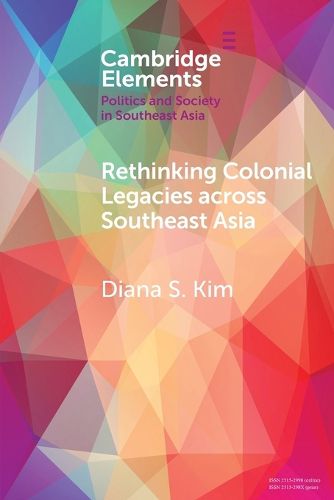Readings Newsletter
Become a Readings Member to make your shopping experience even easier.
Sign in or sign up for free!
You’re not far away from qualifying for FREE standard shipping within Australia
You’ve qualified for FREE standard shipping within Australia
The cart is loading…






This Element explores the significance of the Japanese wartime empire's occupation of Southeast Asia during World War Two for understanding the region's colonial legacies. It conceptualizes the occupation as a critical juncture that mediated the survival of American and European colonial institutions, and comparatively describes how, between 1940 and 1945, a wide variety of formal institutions for governing territories and people operated under the Japanese, who selectively kept or changed the existing arrangements of their Western predecessors, while sometimes introducing new ones altogether. The Japanese occupation, as such, generated different processes for transmitting pre-1940 colonial institutions into postwar and independent Southeast Asia. Building on new histories of the occupation, this Element offers an analytical framework that helps social scientists specify the mechanisms through which the long-run consequences of colonial institutions obtain in the context of Southeast Asia, while grappling more generally with what constitutes a meaningful rupture to historical continuity.
$9.00 standard shipping within Australia
FREE standard shipping within Australia for orders over $100.00
Express & International shipping calculated at checkout
This Element explores the significance of the Japanese wartime empire's occupation of Southeast Asia during World War Two for understanding the region's colonial legacies. It conceptualizes the occupation as a critical juncture that mediated the survival of American and European colonial institutions, and comparatively describes how, between 1940 and 1945, a wide variety of formal institutions for governing territories and people operated under the Japanese, who selectively kept or changed the existing arrangements of their Western predecessors, while sometimes introducing new ones altogether. The Japanese occupation, as such, generated different processes for transmitting pre-1940 colonial institutions into postwar and independent Southeast Asia. Building on new histories of the occupation, this Element offers an analytical framework that helps social scientists specify the mechanisms through which the long-run consequences of colonial institutions obtain in the context of Southeast Asia, while grappling more generally with what constitutes a meaningful rupture to historical continuity.